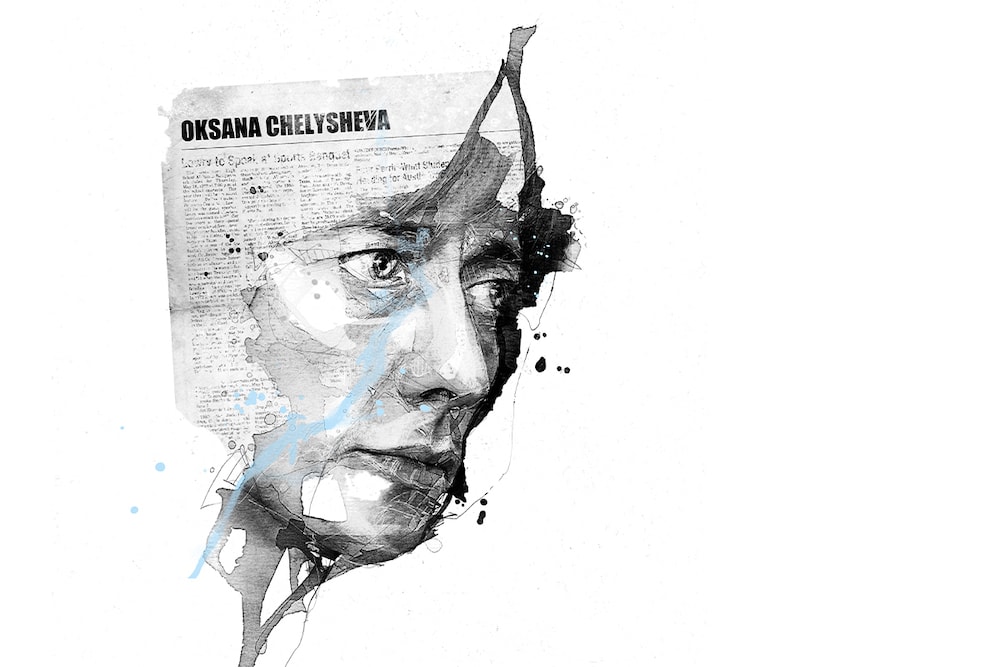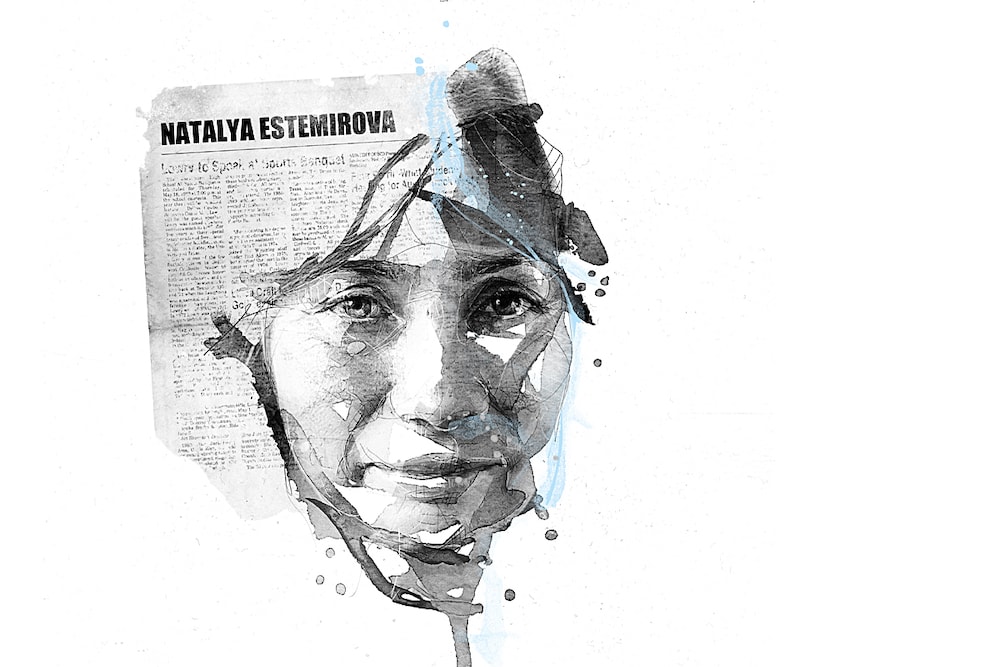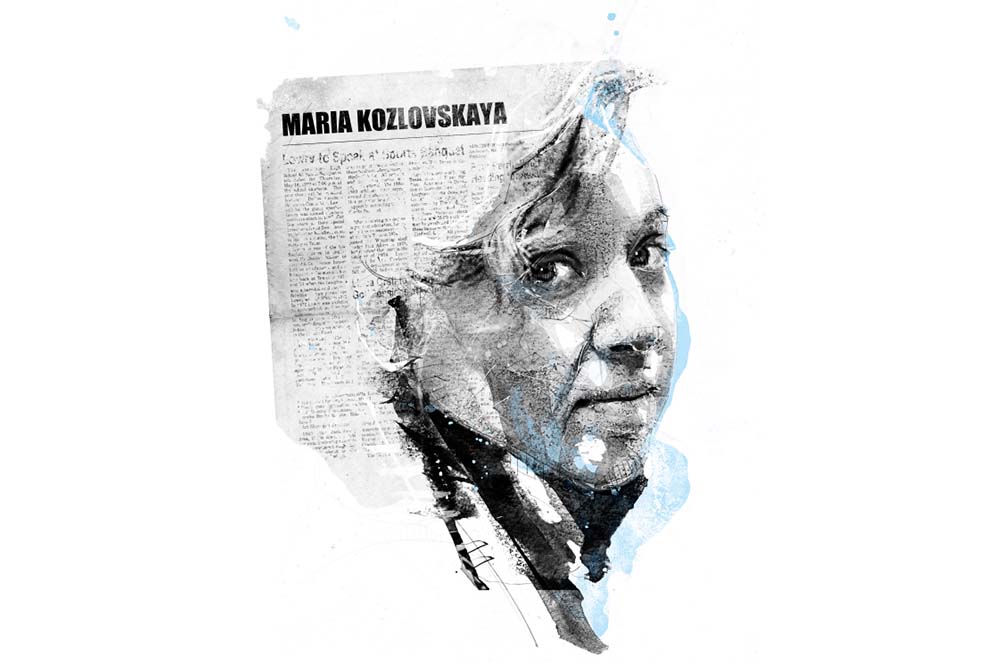One of Russia's most famous investigative journalists, Anna Politkovskaya braved beatings, bullets and poison in her pursuit of the truth.
"If you want to go on working as a journalist, it's total servility to Putin. Otherwise, it can be death, the bullet, poison, or trial - whatever our special services, Putin's guard dogs, see fit."
Brave, independent and fiercely critical of Vladimir Putin’s regime, Anna Politkovskaya was one of Russia’s best known investigative journalists. Murdered in 2006, her legacy is double-edged: young journalists look to her as a model of what they can aspire to be; criminals use her name as a kind of threatening shorthand when they want to silence inquisitive reporters.
The daughter of Soviet diplomats, Politkovskaya began her career in journalism shortly after graduating from university. From 1982 to 1993, she was a reporter and editor for Izvestia; from 1994 to 1999, she was the assistant chief editor of Obshchaya Gazeta; and from 1999 to 2006, she wrote for Novaya Gazeta. As well as practicing journalism, Politkovskaya published several books, including Putin’s Russia – an angry denunciation of the official corruption and rights abuses that were (and are) so rife in her homeland. She was lauded internationally, and was the recipient of many prizes, including the Amnesty International Global Award for Human Rights Journalism in 2001, the Index on Censorship Award for the Defence of Free Expression and the PEN American Center Freedom to Write Award in 2002, and (posthumously) the UNESCO/Guillermo Cano World Press Freedom Prize in 2007.
Politkovskaya was best known for her work exposing human rights abuses carried out by both Russians and Chechen separatists during the second Chechen war (1999-2009). This won her the enmity of protagonists on both sides of the conflict, including Vladimir Putin and his thuggish Chechen ally, Ramzan Kadyrov (then the prime minister of Chechnya, now its president). She often spoke witheringly about these men and their personal corruption, and once described Kadyrov as “a puppet… a coward armed to the teeth and surrounded by security guards.”
Politkovskaya also issued frequent warnings about the threat posed to free expression by Putin’s increasing power. A week after the regime’s disastrous handling of the 2004 Beslan hostage crisis (which had seen over 187 children die as Russian security forces used battlefield weapons against Chechen separatists hiding inside a school), she wrote about information blackouts and journalists parroting the government line on the siege:
“We are hurtling back into a Soviet abyss, into an information vacuum that spells death from our own ignorance. All we have left is the internet, where information is still freely available. For the rest, if you want to go on working as a journalist, it’s total servility to Putin. Otherwise, it can be death, the bullet, poison, or trial – whatever our special services, Putin’s guard dogs, see fit.”
Politkovskaya was no stranger to threats, violence, bullets or poison. In 2001, while investigating allegations that pro-Russian forces had abducted and tortured civilians in the small Chechen village of Khattuni, she was detained by Russian troops, interrogated, beaten and kept in a pit for three days; she was also forced to undergo a mock execution, which she describes in her book, A Small Corner of Hell: Dispatches from Chechnya:
“A lieutenant colonel with a swarthy face and dull dark bulging eyes said in a businesslike tone: ‘Let’s go. I’m going to shoot you.’ He led me out of the tent into complete darkness. The nights here are impenetrable. After we walked for a while, he said, “Ready or not, here I come.” Something burst with pulsating fire around me, screeching, roaring, and growling. The lieutenant colonel was very happy when I crouched in fright. It turned out that he had led me right under the ‘Grad’ rocket launcher at the moment it was fired.”
On 5 October 2006, Politkovskaya spoke gloomily to Radio Free Europe Radio Liberty (RFERL) about the ongoing human rights abuses in Chechnya, and particularly the increase in torture and disappearances under Kadyrov (whom she called a “Stalin for our times”). During the interview, which coincidentally took place on Kadyrov’s 30th birthday, Politkovskaya told RFERL: “I only have one dream for Kadyrov’s birthday: I dream of him someday sitting in the dock in a trial that meets the strictest legal standards, with all of his crimes listed and investigated.”
That was the last interview she gave. Two days later, on 7 October 2006, Politkovskaya was discovered dead in the lobby of the Moscow apartment block where she lived. She had been shot four times at close range in what was clearly a contract killing; she was 48 years old.
Politkovskaya’s murder was condemned by press freedom organisations and governments around the world; there were demonstrations on Moscow’s streets calling for justice. All this was ignored by the Russian authorities, who made no comment on the killing until Putin travelled to Germany on 10 October, the day of Politkovskaya’s funeral. When asked at a press conference about the journalist’s death, his response was nasty and brief. Politkovskaya, he said, was a “sharp critic” whose “influence over political life in Russia was extremely insignificant.”
Justice for Anna Politkovskaya was a long time coming; and when it arrived, it was not entirely satisfactory. After trials, acquittals and retrials, six men were eventually convicted of the journalist’s murder: one was sentenced to 11 years in a penal colony in 2012; the remaining five were handed life sentences in 2014. Those who ordered the killing have not been identified.
In November 2023, it was reported that one of the men convicted of murdering Politkavskaya – former Moscow police officer Sergei Khadzhikurbanov – had been pardoned after fighting in Ukraine as part of Russia’s invading army. At that time, the Russian authorities were offering convicts their freedom in return for six months’ war service.
Illustration by Florian Nicolle




